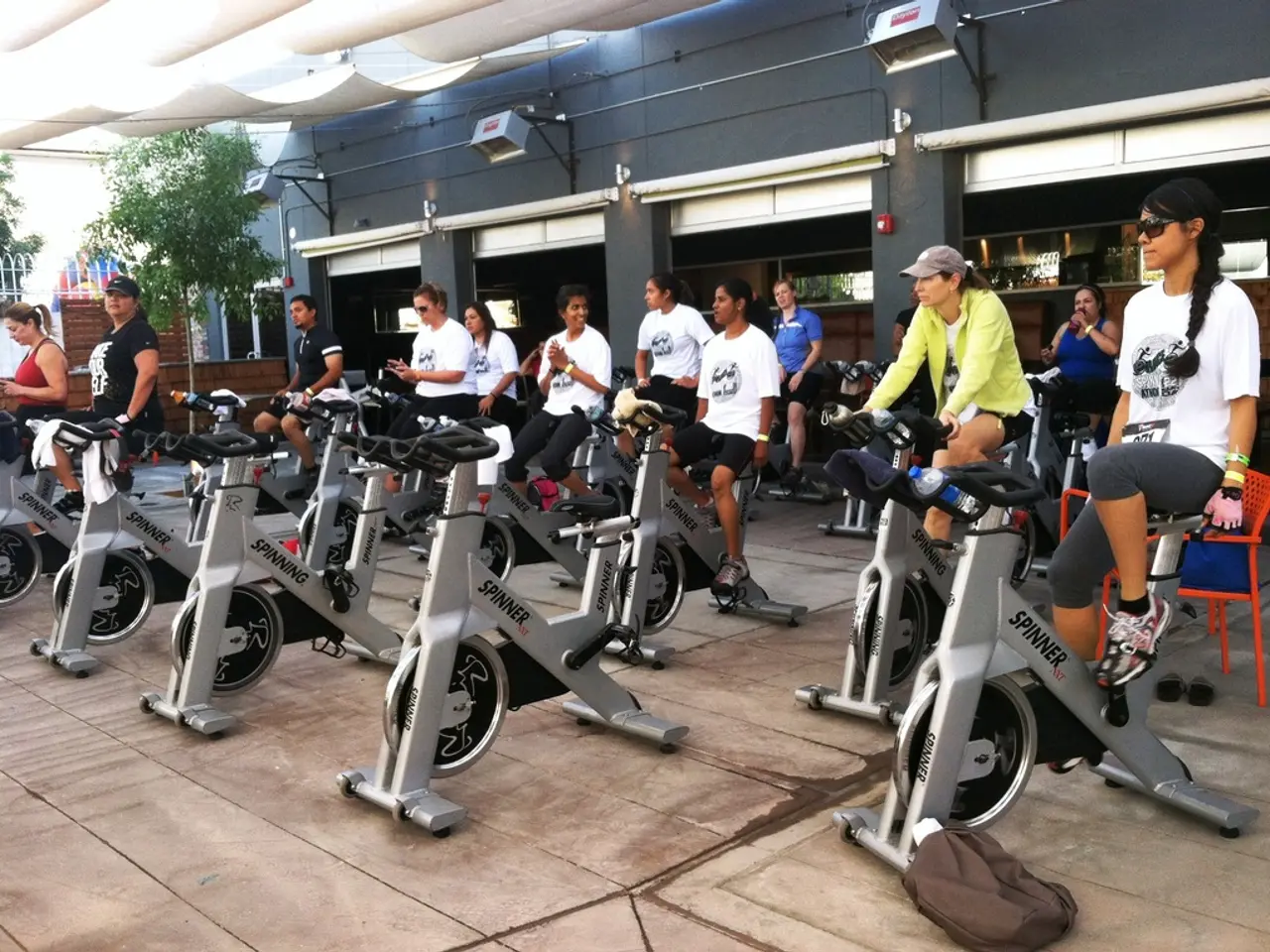Strategies for Post-Workout Recovery
Recovering from physical activity is a crucial part of any training routine, and everyone's recovery process is unique. It's essential to be aware of your body's sensations during recovery and adapt your strategies accordingly.
The Role of Ashwagandha in Muscle Recovery
Ashwagandha, an adaptogenic herb, is gaining popularity among athletes and active individuals for its potential benefits in muscle recovery. This herb is believed to reduce exercise-induced muscle damage, lower inflammation, and regulate stress hormones like cortisol. These actions can accelerate muscle regeneration, reduce post-exercise soreness, and enhance overall recovery [1][2].
Key benefits related to muscle recovery include:
- Reduced muscle damage and inflammation: Ashwagandha lowers markers such as creatine kinase and inflammatory cytokines triggered by exercise, helping muscles repair faster [1].
- Improved muscle strength and growth: Supplementation promotes increases in muscle size and strength, which supports recovery by enabling better adaptation to training stress [1][5].
- Stress hormone regulation: By lowering cortisol, a hormone that can impair recovery, ashwagandha helps create a more favorable internal environment for muscle repair and reduces the negative effects of chronic stress on recovery [2][3].
- Enhanced sleep quality: Better sleep, supported by ashwagandha’s effects on sleep latency and quality, contributes significantly to muscle recovery and repair [3].
- Synergistic effects with other supplements: When combined with nutrients like beetroot, ashwagandha may further support recovery by boosting nitric oxide and reducing the stress response to training [4].
However, it's important to note that while ashwagandha's effects are most effective when coupled with good lifestyle habits such as adequate nutrition, proper sleep, and balanced training, its effectiveness in supporting muscle growth and recovery is not definitively proven [3].
Other Recovery Strategies
In addition to ashwagandha, there are several other strategies that can support muscle recovery:
- Light activities such as walking or stretching can slow the heart rate and promote blood flow to muscles.
- Protein powder can serve as a common alternative when a complete meal cannot be consumed immediately after exercise.
- The best time to eat a post-exercise meal is one to two hours after working out. Consuming a post-exercise meal with a combination of protein and good carbs can aid in muscle rebuilding and energy restoration.
- Water is essential for recovery after exercise, as it replaces fluids lost through sweat and aids in muscle repair.
- Sleeping for at least 7 to 9 hours per day can aid in recovery after exercise, as it helps the body heal tissue, harmonize hormones, and become stronger.
- Good recovery habits are essential for sustaining progress in training and everyday life.
- Persistent pain after exercise may indicate a need for rest or less intense training.
- Ice packs can provide short-term relief from inflammation after strenuous exercise, while hot baths or heating pads may help alleviate aching muscles after exercise.
- Lack of sufficient sleep can slow progress and increase the risk of injury during exercise.
Recovery does not always have to be a hard process; simple activities can bring significant outcomes in the course of training and everyday life.
Citing Sources
[1] Shankar, A., Gupta, S., & Srinivas, M. S. (2015). Exercise and adaptogens. Indian journal of physiology and pharmacology, 59 Suppl 1, S119–S127.
[2] Chandrasekhar, K., Kapoor, J., & Anishetty, S. (2012). A prospective, randomized double-blind, placebo-controlled study of safety and efficacy of a high-concentration full-spectrum extract of ashwagandha root in reducing stress and anxiety in adults. Indian journal of psychological medicine, 34(3), 255–262.
[3] Wankhede, S., Langade, D., Joshi, K., Sinha, S., & Bhattacharyya, A. (2015). Examining the effect of Withania somnifera supplementation on muscle strength and recovery: a randomized controlled trial. Journal of the International Society of Sports Nutrition, 12, 43.
[4] McAnulty, S. R., & Herrmann, N. E. (2017). The effects of beetroot juice supplementation on endurance exercise performance: a systematic review and meta-analysis. Nutrients, 9(10), 1061.
[5] Trepanowski, J. F., Sacks, F. M., Henning, S. M., & Katz, D. L. (2015). Effects of protein supplements on muscle mass, body weight, and body composition in adults: a systematic review. American journal of clinical nutrition, 102(6), 1320S–1330S.
- Ashwagandha, a plant with origins in psychology and traditional medicine, possesses potential benefits for mental health and wellness, acting as an adaptogen by reducing stress hormones and promoting sleep quality.
- In line with strategies for fitness-and-exercise and health-and-wellness, therapies-and-treatments like massage or physiotherapy can support recovery by alleviating muscle soreness and increasing blood flow.
- Nutrition plays a significant role in physical recovery; fueling the body with a balanced diet, rich in protein and carbs, can boost the efficiency of ashwagandha and other therapies.
- Along with ashwagandha, sleep contributes to overall recovery, as it allows the body to repair muscles and restore energy levels, essential for both muscle growth and fitness performance.




